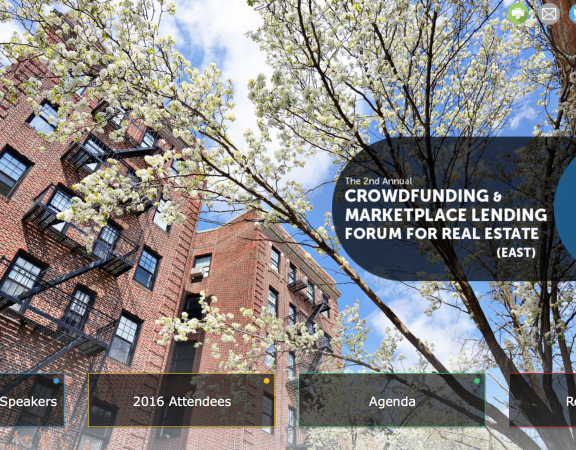Hyperlocal real estate crowdfunding is a particular form of investing that’s definitely worth reading about. As you’ll see, while it comes with some risks, the upside is extremely attractive.
It’s About Investing Locally
This much may seem fairly obvious. Hyperlocal real estate refers to the kind that exists all around wherever you live right now. As the law stands, unaccredited investors pretty much can’t put money into real estate deals outside of their current state of residence. Still, that leaves a very large area for them to explore. With hyperlocal real estate, the idea is that you stick with the areas where you’re most familiar.
Hyperlocal Real Estate Leverages Knowledge
There are many reasons to be excited about what hyperlocal real estate crowdfunding can provide investors, but one of its biggest assets is simply that it takes advantage of knowledge of the area.
Obviously, you’re going to know a lot more about the real estate market down the block than you ever would about the one that exists two counties over. You’re not all on your own, though, in trying to make sense of this.
That’s because you have other investors to rely on too. The hyperlocal market has seen a lot of success stories that involve a larger investor—usually with real estate experience—and many smaller ones coming together. Those smaller investors get to take advantage of the bigger party’s hyperlocal insights while the latter gets the money they need for their deal. It’s a huge win/win.
The Market Is Hyperactive
Real estate crowdfunding is a market that’s heating up throughout the country, so it’s no surprise that the hyperlocal version is following suit. However, because hyperlocal markets have less room for as many investors, it’s already become hyperactive.
That doesn’t mean it’s inflated, much less hyper-inflated, but it’s definitely very, very active at the moment. This means that finding the right deals demands far more due diligence than it did before. You have to understand who is in the pipeline looking to sell before they even come to the market. Again, this is where having that hyperlocal knowledge (and, usually, partnering with someone established in the industry) makes a huge difference.
1031 Exchanges Will Become Commonplace
Part of that hyperactive market is investors who have already been investing in real estate on the local level for years. Now, though, with all this opportunity around them, they’re interested in doing a 1031 exchange. They may want to move up from, say, a 50-unit building to a 500-unit building or business complex. To do this, an investor might prefer to just use a 1031 exchange.
Thanks to this new market, that’s going to be far more of an option than ever before. Investors are available to facilitate this kind of swap and have an open timetable for doing it. This makes it much easier to deal with this kind of transaction.
Obviously, a big part of this new factor is that you don’t need to wait as long to find an investor or even group of investors to take over the 50-unit building. Just put it up on a real estate crowdfunding platform and watch as the necessary investors show up to take it off on your hands.
Vacancy Rates May Become a Risk
It’s also worth pointing out the potential risks unique to hyperlocal real estate crowdfunding. One of the major ones people are worried about right now is vacancy rates. There are a number of reasons to believe that they may begin seeing an increase in them over the coming years. If that happens, equity-based investors are going to see their profits dwindle. Obviously, a lot of investment opportunities are going to dry up too.
The problem is that most real estate investors who have been doing this for decades will tell you that trying to time the market is almost always a losing strategy. All you can really do is make your profits on the buy side. Put your money into a good, solid property that has a respectable track record. Go with the most conservative numbers possible for what your future revenue should look like and then pull the trigger.
What you can’t do is go through the aforementioned steps and decide to gamble, hoping that the future outcome for a property will miraculously improve now that you’re involved. Never bank on appreciation saving the day or the market coming to your aid. Instead, look at what you’re dealing with and calculate in some downside.
Again, just be very conservative in what you expect from the future. Don’t hope for growing net incomes. Instead, if you’re currently seeing a 5% vacancy rate, move forward like you expect that to double in the next few years. If the deal still makes sense, your risk shouldn’t stop you from investing.
Hyperlocal Is Still the Safest Bet
There are going to be risks with any investment you make, so the above shouldn’t scare you off. In fact, there’s a lot of reason to prefer going the hyperlocal route. People are just far too optimistic on the national level. That’s because they simply can’t account for the details of a local market like someone who has decades of experience in that area. It’s that experience that you want working to keep you safe.
More Platforms Are Coming
Currently, there are roughly 150 real estate crowdfunding platforms out there and probably 10 more coming every single month. Expect that more and more of them are going to push the hyperlocal option because, frankly, it makes so much sense.
Still, it’s hard to believe market saturation is anywhere on the horizon quite yet. Consider that there are millions of real estate websites out there and probably just as many different brokerage houses across the country. That’s despite the recession. If the traditional market hasn’t become saturated yet, the platform market isn’t there either and this will only work to your advantage if you decide to focus on hyperlocal real estate crowdfunding.
At the end of the day, you have to be careful with hyperlocal real estate crowdfunding, but that’s no reason to ignore these investment opportunities. If anything, they probably represent your best option for profits in this exciting market.
Matthew Sullivan
@thecrowdventure
Image by Shutterstock






